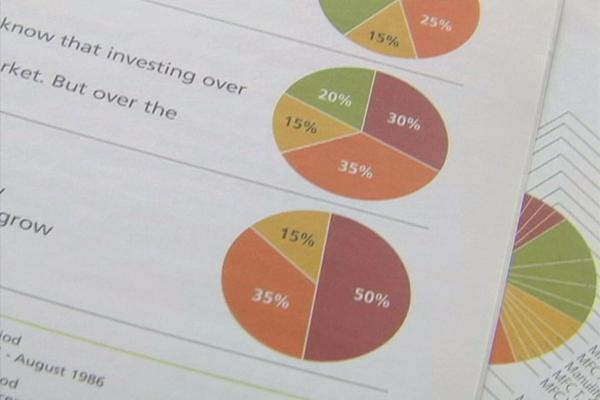Markets
Genesis Therapeutics raises $200M for AI drug discovery based on Stanford research
Genesis Therapeutics, a startup using artificial intelligence to design small molecule drugs, has raised $200 million in Series B financing — one of…

Genesis Therapeutics, a startup using artificial intelligence to design small molecule drugs, has raised $200 million in Series B financing — one of the largest rounds for an AI-focused biotech this year.
The round is being co-led by Andreessen Horowitz (a16z) Bio + Health and an anonymous life science investor. The Burlingame, CA-based company, which previously struck partnerships with Eli Lilly and Genentech, will use the money to further develop its generative and predictive AI technologies, expand its pipeline, and move its first computer-generated drugs into clinical studies.
Genesis is based on the work of two key studies published by its Stanford University founders in 2018 and 2020. The first debuted a neural network dubbed PotentialNet, tailored to optimize the binding of small molecules to their protein targets. The second study claimed to have used deep learning to predict the absorption, distribution, metabolism, elimination, and toxicity of drug candidates with “unprecedented accuracy.”
But exactly how Genesis has advanced the technology and what it’s doing with it is largely under wraps. In an interview with Endpoints News, co-founder and CEO Evan Feinberg wouldn’t name specific targets or diseases the company is working on or when it plans to move its lead programs into clinical studies. But he noted that cancer has been one area of focus for Genesis and that new funding would help “further broaden” its internal pipeline.
“There are many severe diseases with a rather well-characterized biology, where we know what target makes sense to pursue, but where the chemistry is very challenging,” Feinberg said.
The company’s pipeline is focused on such targets that are either “straight-up challenging” or “very data-poor” with few or no compounds known to bind the proteins, he added.
Major investors, big capital
New investors in Genesis include BlackRock, Fidelity, and NVentures — chipmaker Nvidia’s venture capital arm. Returning investors T. Rowe Price, Rock Springs Capital, Radical Ventures and Menlo Ventures contributed to the Series B round as well, which brings the company’s total funding to $280 million since its inception in 2019.
That puts Genesis in a club of well-capitalized companies, including Atomwise, Exscientia, Insilico Medicine, Insitro, Recursion Pharmaceuticals, and many others that have collectively amassed billions from private or public investors to bring the discovery and design of small molecules into the age of AI.
 Vijay Pande
Vijay Pande“This AI revolution is going to come to chemistry,” said Vijay Pande, founding general partner at a16z Bio + Health and a former Stanford professor whose work Genesis is based on. “Drug design is such an immense field, it’s never going to be a winner-take-all space.”
In the mid-2010s, when Feinberg was a graduate student in Pande’s lab at Stanford, he set out to develop new AI technologies tailored to drug discovery. Crucially, he wanted his models to respect the natural laws of chemistry and physics.
At the time, that was something that most machine learning programs typically ignored, the thinking being that with enough data, the models would land on the right answers anyway. The problem with that approach, Pande said, is that machine learning models are “really limited to the data that you put in.”
Physics-based models can do things without all that data, but the computer power required to run them makes them expensive, Pande said. “But if you have something that’s built from the fundamentals, you can handle situations that you’ve never seen before,” he added.
Small mistakes that add up to big problems
“Deep learning and physics-based methods had been disparate pillars,” Feinberg said. “Genesis is unifying those two distinct disciplines, initially in ways that were making each them complementary to each other, but more recently, as a more deep synthesis.”
The company has also developed a generative AI tool for creating drug-like molecules on computers, but Feinberg and Pande both said that concocting those virtual structures is the easy part. The real key, they said, is screening those digital compounds to predict which ones have properties that will make them good drugs.
“Generative AI is very exciting for making pictures and text. But if you look at how it does with pictures, a lot of times, people will have six fingers or something like that. There’ll be little details that are wrong,” Pande said. “In drug design, if you have a small detail that’s off, the whole thing is not going to work.”
That difference can be as small as a single carbon atom being in the wrong place or the computer creating an unrealistic bond between two atoms. “But those small differences make a big difference,” Pande added.
The company has roughly 50 employees today between its headquarters in Burlingame, just south of San Francisco, and at its labs in San Diego. Feinberg said that Genesis would be “bolstering” the development team to support its upcoming clinical trials, but he declined to disclose exact hiring goals.
therapeutics
small molecules
pharmaceuticals
biotech
artificial intelligence
ai
machine learning
medicine
venture capital

Wittiest stocks:: Avalo Therapeutics Inc (NASDAQ:AVTX 0.00%), Nokia Corp ADR (NYSE:NOK 0.90%)
There are two main reasons why moving averages are useful in forex trading: moving averages help traders define trend recognize changes in trend. Now well…
Spellbinding stocks: LumiraDx Limited (NASDAQ:LMDX 4.62%), Transocean Ltd (NYSE:RIG -2.67%)
There are two main reasons why moving averages are useful in forex trading: moving averages help traders define trend recognize changes in trend. Now well…
Seducing stocks: Canoo Inc (NASDAQ:GOEV 5.43%), Ginkgo Bioworks Holdings Inc (NYSE:DNA -1.12%)
There are two main reasons why moving averages are useful in forex trading: moving averages help traders define trend recognize changes in trend. Now well…














